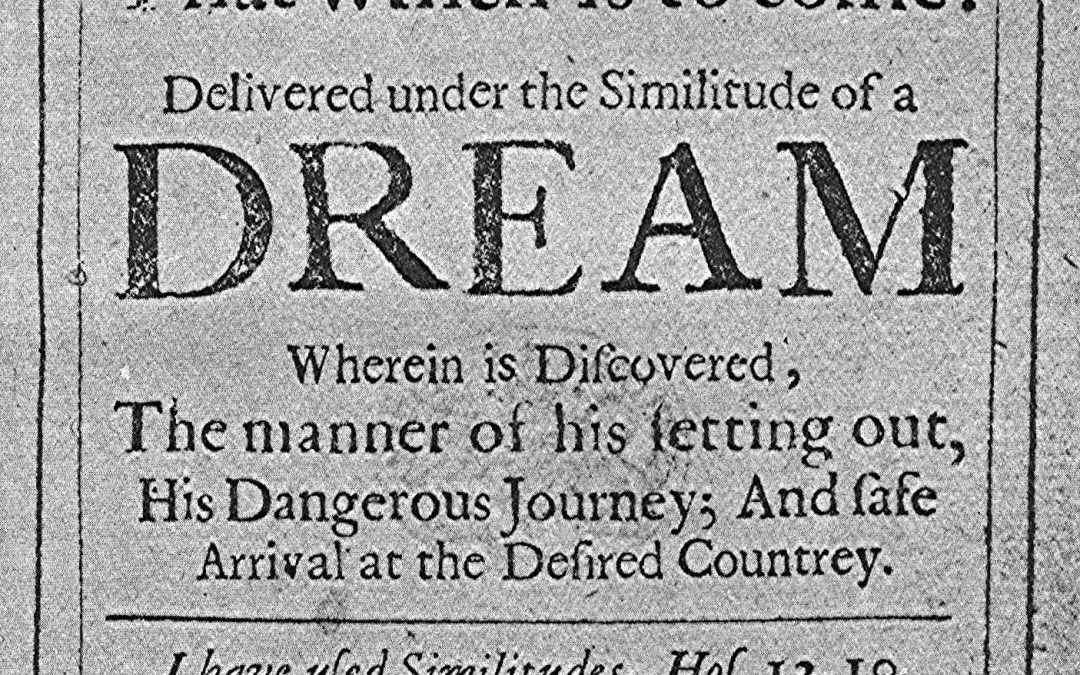“Life at times appears to fall apart. But it’s going to be ok. God is whispering to you. That is his voice you hear. Trust him. Allow the creator of the universe to comfort you. If God can make a galaxy, can’t he make good out of your bad and sense out of your faltering life? Of course, he can. He is God.” Max Lucado
Late November 1660 – Bedford Prison – Bedford, England: On a cold, rainy afternoon, John Bunyon watched a rat sniffing around in the corner of his cell. The stench from the filth in his cell made him gag. During her weekly visits to the prison his wife, Elizabeth, dipped her handkerchief in perfume and kept it over her nose.
Bunyon’s prison sentence had caused outrage among his family and parishioners. He had been arrested for preaching without approval from the Church of England. The judge sentenced him to 12 years in Bedford Prison “for teaching men to worship God contrary to the law.”
Bunyon grew up in Elstow, a small village about a mile outside of Bedford. His father was a poor tinker–a maker and repairer of pots, pans and utensils. He supplemented his meager income with produce from their small farm. Young Bunyan learned his father’s trade and pushed a two-wheel cart through the streets selling pots and pans. He received enough schooling to be able to read and write, a rare skill for children in 17th century England.
At age 20, Bunyon married Elizabeth and renounced the Church of England. After being baptized in a small Baptist church in Bedford, he started preaching. He also began writing. His first published work was a pamphlet titled, “A Few Sighs from Hell.”
In 1660 when King Charles II ascended to the English throne, 32-year-old Bunyon was Bedfordshire County’s most sought-after Baptist preacher. Charles, not one for religious tolerance, reestablished a law that everyone had to belong to the Church of England and take communion at least three times a year. All other forms of worship were prohibited.
Authorities arrested Bunyon on November 12, 1660, while he preached at a farmhouse outside Bedford. The local magistrate agreed to give him a light sentence of three months if he would agree to stop preaching. Bunyon refused. His sentence was extended to 12 years.
Elizabeth, left destitute to raise four children, pleaded her husband’s harsh sentence before the local magistrate on numerous occasions, but to no avail. Her regular visits gave her husband the hope and strength he needed to carry on.
The conditions at Bedford prison, like all English prisons in the 1600s were appalling. Sanitation facilities were non-existent, the food was putrid, prisoners slept on straw on the floor and many died of typhoid fever. A long prison sentenceusually equated to a death sentence.
Prison proved to be the turning point in Bunyon’s life. After months of discouragement, and despite his miserable situation and little hope of release, he began to devote more time to reading his Bible and preaching to his fellow prisoners. God reminded him that that he had more time to write. He began to work on a book based on the struggles in his life. He called it Pilgrim’s Progress.
John Bunyon served his 12-year prison sentence before being released in March 1672. Six years later, he finally published Pilgrim’s Progress. Its immediate success surprised him. Over the next decade the book was reprinted eight times, translated into French and Dutch and sold over 100,000 copies. There was such a demand for the book that, in 1684, Bunyon published a sequel, Pilgrim’s Progress, Part II. Before his death from pneumonia in 1688, Bunyon published 42 titles, but none were as popular as Pilgrim’s Progress.
Today, Pilgrim’s Progress is considered one of the most significant works in the history of English literature. In the 345 years since its publication, the book has never been out of print and has been translated into more than 200 languages. It is an enduring literary classic written in a squalid prison cell by a soul that was refined by the fires of adversity.

Powerful story. I would have never survived that stinking prison. God bless his soul.